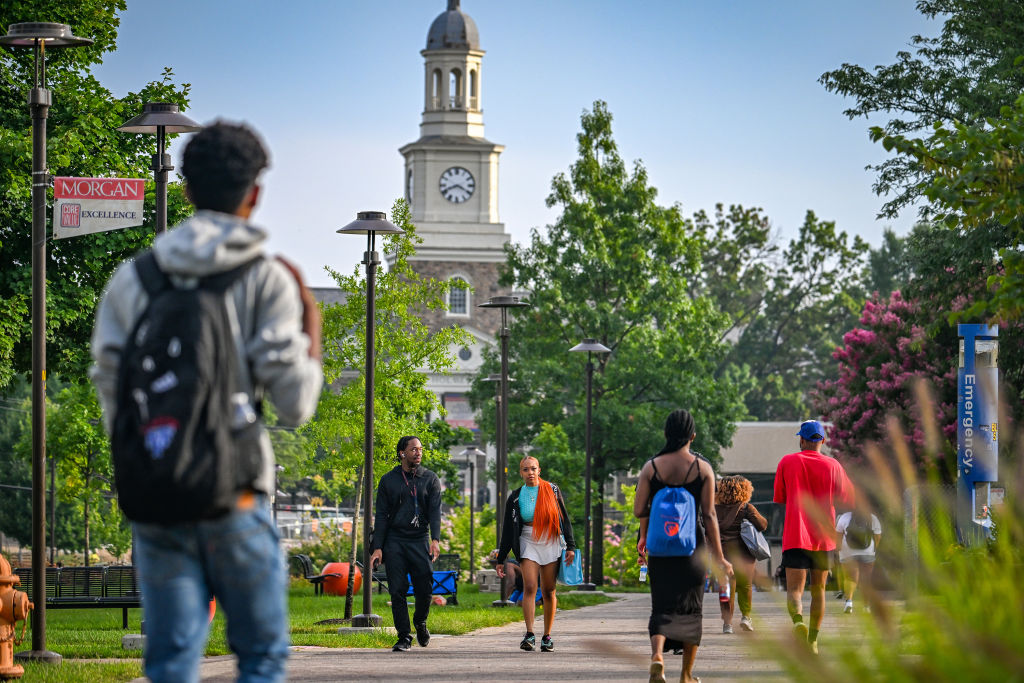
February 1, 2025
Morgan State Tackles Crisis Of Declining Black Male Enrollment With New Task Force
The task force will examine the causes of a drop in Black male enrollment and retention at Morgan State and other HBCUs.
On the heels of several reports that indicate there is a deepening shortage of Black men on the campuses of HBCUs as well as other universities, Morgan State University is taking action to find a solution to the problem.
According to a press release issued by the university, the formation of the Presidential Task Force on the State of Black Male Enrollment at Morgan will examine the causes of a drop in Black male enrollment and retention at Morgan State and other HBCUs.
The task force will also investigate actionable solutions to what some have described as a crisis.
According to Morgan State University President David K. Wilson, “Morgan has long been a leader in providing access and opportunity for Black males seeking higher education,” Wilson said. “The ongoing decline in Black male enrollment at HBCUs is a clarion call for action, and we will not stand idly by.”
He concluded, “This task force will engage in rigorous research to understand the forces at play and develop evidence-based strategies to ensure that more Black men not only enroll at Morgan but thrive and complete their degrees.”
Wilson has tapped Mark Barnes and Michael Sinclair, associate professors representing the History and Geography and Social Work departments, respectively, to lead the task force.
The two men will co-chair a task force comprised of faculty, researchers, staff, and students committed to developing solutions to enhance recruitment, engagement, and retention of Black male students.
According to Dr. Sinclair, “This is a pivotal moment for higher education, and I am honored to serve in this capacity. Addressing the decline in Black male enrollment requires a thoughtful, cross-sectional analysis of the economic, social, and institutional factors at play—and the broader socioeconomic impact on Black families and communities.”
He concluded, “Our goal is not only to understand why these trends are occurring but to implement meaningful solutions that will empower Black men to see higher education as an attainable and rewarding path. I am proud to heed President Wilson’s call to action and work alongside my colleagues to ensure that Morgan remains a place where Black men thrive academically, professionally, and personally.”
In October, Calvin Hadley, an assistant provost for Academic Partnerships and Student Engagement at Howard University, made an impassioned plea for Black men to once again consider HBCUs in an interview with NPR‘s Juana Summers.
“You attend an HBCU for an education and not a degree, and as an assistant provost, that’s not a popular thing to say. The education that you receive in an HBCU transcends the classroom experience. It transcends the relationship that you have with your professor. The education exists in between the lines of the pages. HBCUs inundate you with the sense of belief. We talked about the importance of that belief on the front end, the belief gap that exists in K through 12,” Hadley said.
He continued, “HBCUs are created to instill you with the belief that you can be even larger than you can dream…The HBCU community needs you. And so when I’m talking to that young man in 2024: Come because we need you. Come because you’re important. Come because without you, our community is hurt.”
RELATED CONTENT: Howard University’s Calvin Hadley Pleads For Black Men To Enroll At HBCUs